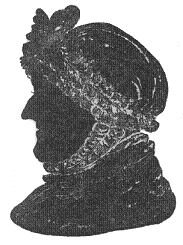
I’m always a little sad when I realize the end of summer is coming. Well today it is here, since it is October first, but the sun is shining today (after an awful, cold, rainy Friday) and I can hear the birds through my open window. And…it is quiet. Or still quiet, I should say, since Saturdays in a small city never stay that way.
I plan to take a walk down by the river and check out the locks close and personal. I love the sound of the water coursing over the dam, the call of the gulls, the peaceful, meditative nature of it. But for now, I am thinking about the Regency and considering what would be different…or the same.
Birds. Crickets. A distant baby’s cry. The sound of the river… There is no traffic at the moment, but if there was, it would be the clop-clopping of horses’ hooves up the street on cobblestone, or perhaps it would be a more muffled thudding in dirt or mud. I would hear the jingling of harness and the occasional call of the drivers to their team (I say occasional, as I am trying to keep it as peaceful as it is now!). There would be the smell of horse instead of exhaust, whiffs of coal or wood smoke, perhaps the hot metal smell from a nearby blacksmith’s forge.
My heroine might well be gazing out the window and thinking of a walk, just as I am. She would have a book in her hand, or be writing a letter, but the warm day has called to her. Since this is a small city, she’d don a proper walking dress, but if she were like me she would choose to wear what was comfortable over fashion and seek a walk to satisfy her soul rather than to be seen.
Times change. People, not so much. Not at their center. Surroundings, attitudes, fashion, beliefs, laws, and habits change. Not hearts.
When we write, we rely on what has not changed…and we try our best to understand what has. Unlike writing contemporary novels, we cannot speak to witnesses to gather information. We cannot visit the places where the characters dwelt. Oh, we can go to the geographic location, certainly, and it will yield clues–but it will not be the same. Roads have changed or gone out of use and grown over. Buildings have vanished, and something new may or may not be standing in their steads. Erosion and war has altered the landscape. New flora will be growing that did not exist at the time of the story, and old varieties will have vanished.
I think of roses and the many beautiful varieties that exist now, the hybrid teas, tall and straight-stemmed with those artfully folded petals of such substance…and then think of the old roses, the ones on short, weak and bending stems, the blossoms a soft ball of delicate petals in unformed arrangement, exuding an intoxicatingly sweet scent. They were beautiful…beautiful in their own way, bending their lovely wild faces toward the earth, heavy with dew.
But we can understand the beauty of the rose of whatever form. We can understand human nature. We understand the human heart.
Not much of substance in this today, I am afraid. But this is what I am thinking on this lovely day at the end of summer, as the last roses fade.
Laurie

